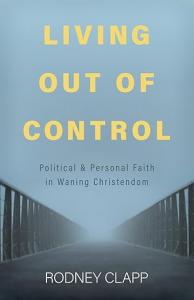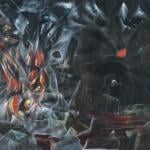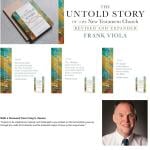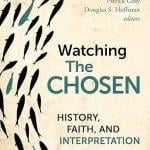This constitutes the final entry to our discussion of Rodney Clapp’s book Living Out of Control: Political and Personal Faith in Waning Christendom. Here I discuss Chapter Nine: Resonance. If you have read the chapter, feel free to comment. Otherwise, feel free to ask a question.
Please remember our next book discussion which will be of Gregory A. Boyd’s book A God Who Looks Like Jesus (Herald Press). It’s brief, easy to read, and inexpensive. Please order it and read the first chapter which I will take up for discussion on or around July 21.
What does Rodney mean by “resonance?” “Resonance can occur through any or all of our senses. It is a relationship, a response-able relationship, between two parties. To better appreciate it, we may attend to it in its most literal presentation, namely that of sound and especially music. … Resonance, to be experienced, requires us to be out of control.” (111, 112)
I have to admit that I do not think I fully understand resonance. Maybe it is the feeling I get when I smell a certain fragrance that seems to “take me back” to a time and place even if I can’t quite grasp what that was. Maybe it is the feeling I get when I hear a song that seems to “take me back” to a time and place. Almost all of those songs are popular songs from the 1960s through the mid-1970s. That was a time of special, new emotions. They are somehow “implanted” in my emotional memory bank and can be brought back, at least a little bit, by a song or smell.
But Rodney seems to mean something more by resonance. His meaning is almost mystical. He talks about a “longing for a different, non-alienating relationship with this world.” (115) I have to admit I’m not sure what that is.
Whatever resonance is, Rodney says it cannot be forced or manufactured. It just happens. And, somehow, it is part of true friendship. And prayer.
Rodney ends the chapter and the book by saying “In the light of resonance theory, the Apostle Paul’s enigmatic advice to ‘pray without ceasing’…might be read as an exhortation to let the attitude and posturing of formal prayer spill over into and suffuse all of life. … In short, to ‘prayer without ceasing’ may be a call to live out of control.” (124)
I admit to my failure to grasp the meaning and experience of resonance in all that Rodney means by it. I tell some people that I “don’t have a mystical bone in my body.” I don’t. I may have experienced resonance, and I gave some possible examples earlier here, but I suspect Rodney means much more by it than I can grasp or understand.
Throughout this book Rodney has criticized “control.” People aren’t meant to control others or their environment. Jesus was not a control freak. We, Christians, aren’t supposed to be, either. Whatever the experience of resonance is, according to Rodney, it is uncontrollable and teaches us to let go of control.
*Note: If you choose to comment, make sure your comment is relatively brief (no more than 100 words), on topic, addressed to me, civil and respectful (not hostile or argumentative), and devoid of pictures or links.*













